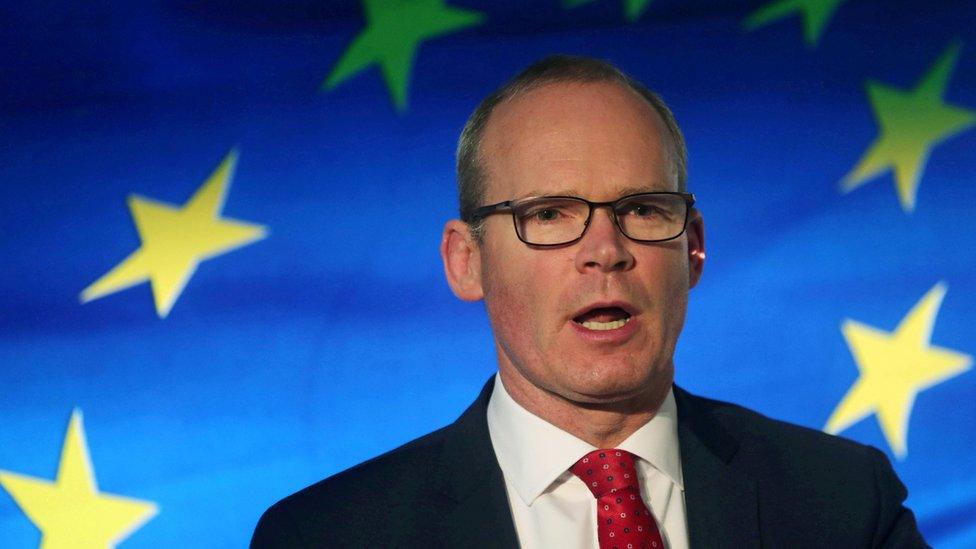Northern Ireland Protocol: Will UK-EU talks lead to truce or trade war?
- Published
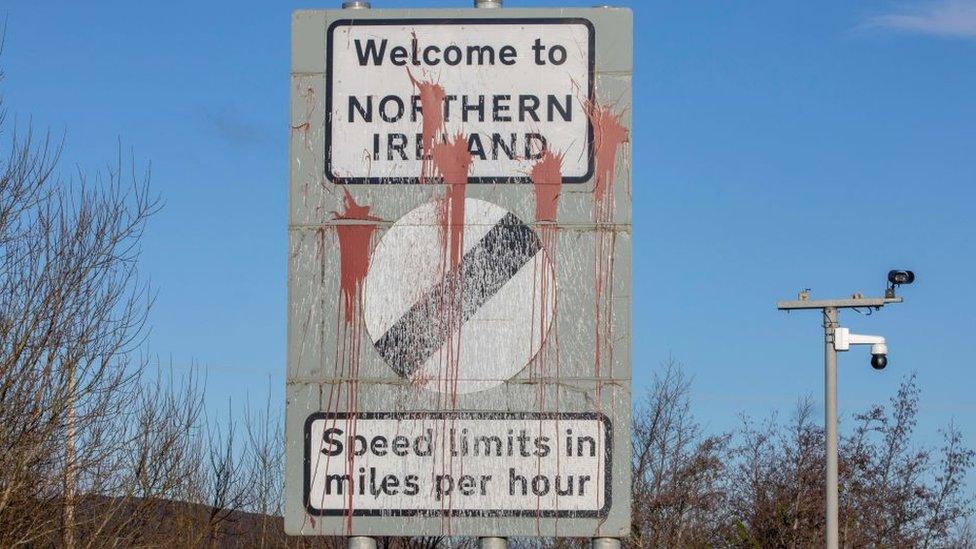
"I suppose you've rung me to talk about the Northern Ireland Protocol...", comes the weary voice down the phone.
It's not diplomats or politicians from any particular EU country who greet me like that these days. It's the reaction I get pretty much across the board.
Four years of Brexit negotiations before the UK's final departure in January last year have left the EU with no appetite for more.
Member states are far more focused on struggling with post-Covid economic challenges, soaring gas prices and smouldering intra-EU strife with Poland and Hungary. The last thing EU capitals say they need or want right now is a trade war with the UK.
But tensions over the Northern Ireland Protocol are real.
Brussels and London agree - though to differing degrees - that the protocol isn't working well for the people of Northern Ireland.
On Tuesday, the UK's Brexit Minister Lord Frost called for far-reaching changes to the text.
Brussels views this as a demand for a rewrite, and the EU is refusing to renegotiate the protocol's framework.
It was drawn up as part of the Brexit divorce deal, known as the Withdrawal Agreement. The result of an effort by EU and UK negotiators to avoid a hard border on the island of Ireland - dividing Northern Ireland, which is part of post-Brexit UK, from EU member state Ireland.
The fear was that a customs border between them might endanger the peace process.
And that's how Northern Ireland - which is legally part of the UK customs union - ended up also remaining in the EU customs union and single market for goods after Brexit, as set out in the protocol.
This "exceptional solution" as the negotiators saw it, was an attempt to recognise the exceptional case of Northern Ireland, to avoid that hard border with the Republic of Ireland and to safeguard the peace process after Brexit.
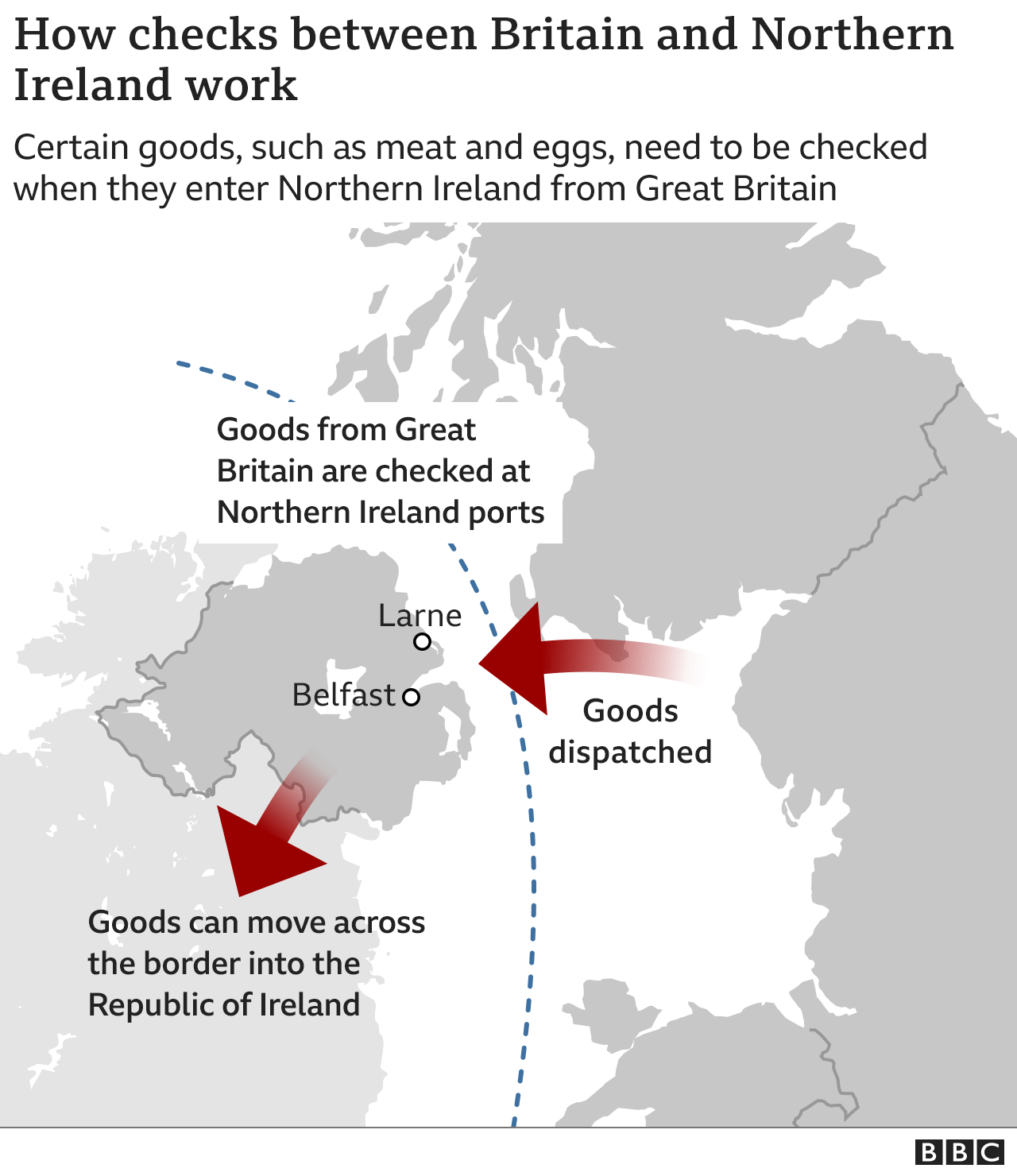

But, to protect the EU's single market from goods potentially flooding in unchecked from the UK, Brussels insisted customs checks needed to be carried out between Great Britain and Northern Ireland - if they weren't going to take place on the island of Ireland.
This has angered unionists in the North, who feel they are being severed from the United Kingdom.
Lord Frost and others in the UK government warn the Protocol is upsetting the delicate political balance in Northern Ireland, thereby endangering the peace process the agreement was supposed to protect.
But Brussels insists this is an international treaty signed knowingly at the time by the UK government.
It says it is happy to work on ironing out any day-to-day practical difficulties of the protocol, raised by businesses and civil society in Northern Ireland. But the EU wants to make clear this week that it is not bowing to "attempts at bullying" by London, in the words of one European diplomat I spoke to.
The EU describes its new proposals as "practical steps to solve concrete problems".
It says it wants to ensure the smooth arrival of medicines from Great Britain into Northern Ireland.
Because it has heard complaints in Northern Ireland that regulations are being made concerning life there, without local involvement, Brussels will undertake this week to consult more with the authorities and businesses there.
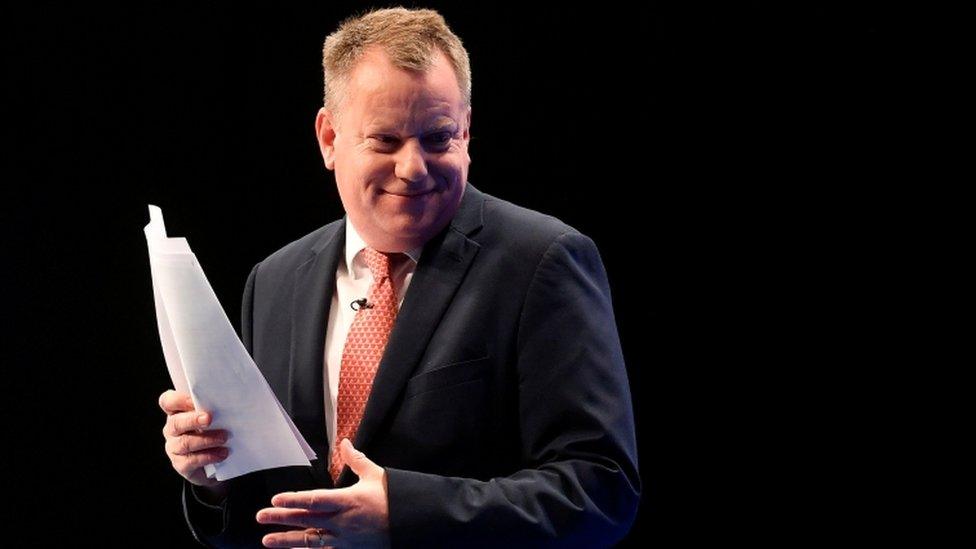
Lord Frost said on Tuesday that British people "voted for change and that's what they expect"
And while the EU insists that waiving customs checks altogether would endanger its single market, EU insiders say new measures being suggested this week to reduce the number of checks on goods and animal products travelling from Great Britain to Northern Ireland (and therefore potentially onwards into the EU single market) already go too far for some EU member states.
However, for now, Brussels is refusing to engage with Lord Frost's demand to remove the role of the European Court of Justice in the protocol.
The ECJ is a red rag to many Brexit supporters including in the governing Conservative party.
David Frost said on Tuesday he wanted to see the Protocol changed to become "like a normal treaty in the way it is governed, with international arbitration instead of a system of EU law ultimately policed in the court of one of the parties, the European Court of Justice".
But again the EU insists the protocol is no normal treaty.
It says that Northern Ireland's ongoing participation in the EU customs union and single market means in those areas it is subject to EU regulations and those, in turn, are always policed by the European Court of Justice.
Yet there is some wiggle room here.
In its agreements with sovereignty-minded Switzerland, the EU has an additional layer of oversight - placing the ECJ very much at arm's length.
But even if Brussels eventually suggested this, would the UK government go for it?
On Tuesday, Baroness Chapman, shadow Brexit Minister in the Labour Party, accused senior Conservatives of being "desperate to use a tussle with Brussels" to distract from what she described as the government's domestic failures - whether on Covid or the current energy crisis.
A number of EU diplomats I've spoken to have echoed this sentiment. They're not convinced the government wants to resolve the protocol situation with Brussels, they say. At least not right away.
That is an accusation denied by the UK government.
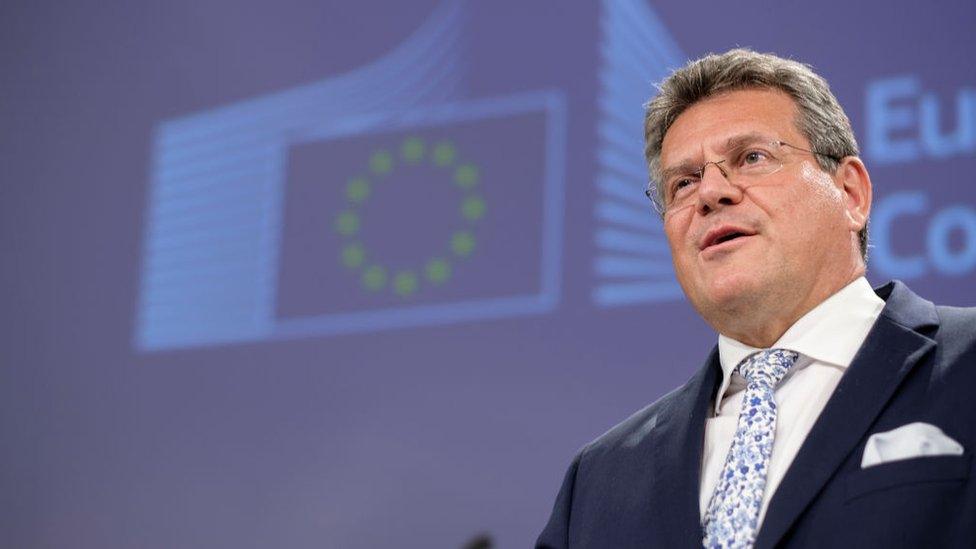
Details of the proposed changes will be given by European Commission Vice-President Maros Sefcovic later on Wednesday
In fact, Lord Frost says he's put together the legal text of a "forward-looking" new protocol which he has passed to the European Commission for consideration.
For now, despite some barbed exchanges by individual politicians (take a look at this weekend's Twitter spat between Ireland's Foreign Minister Simon Coveney and Lord Frost) both the EU and the UK insist theirs are not take-it-or-leave-it positions.
Both sides say they're open to discussion over the coming weeks. Lord Frost called on Brussels to be "ambitious" and to work together with the UK to agree "a better way forward". The EU is calling for "constructive dialogue".
Let's see.
The UK government has threatened to suspend parts of the protocol if it deems that to be necessary.
The EU assumption is that, even if talks go badly, the UK would be unlikely to take such action before mid-November when the international COP26 climate summit in Glasgow comes to an end.
This would avoid a big UK moment on the global stage being dominated by headlines about a row with Brussels and the possible endangering of the Northern Ireland peace process.
But Brussels is readying itself for every eventuality. Key EU member states say they've asked the European Commission to prepare "targeted retaliation" if, for example, the UK suddenly stops customs checks on goods entering Northern Ireland from Great Britain.
One possibility you hear mentioned is that the EU could start new legal proceedings against the UK and/or suspend parts of its post-Brexit "zero tariff zero quota" trade agreement with the UK. The idea would be to target strategic UK markets like whisky or cars "to send a clear message to London", according to EU diplomats I've spoken to.
As bilateral discussions start again in earnest over the Northern Ireland Protocol, there's definite potential for things to get a lot messier.
- Published12 October 2021
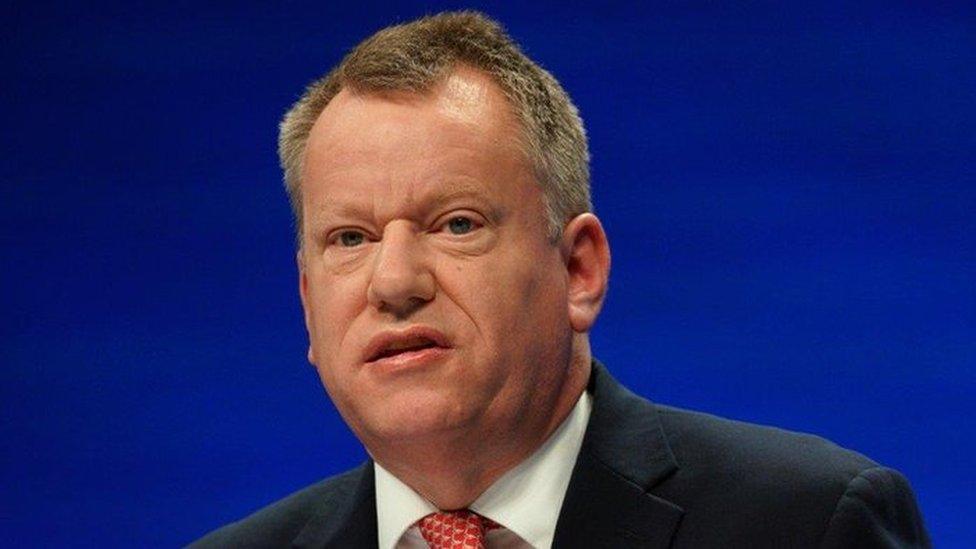
- Published11 October 2021
